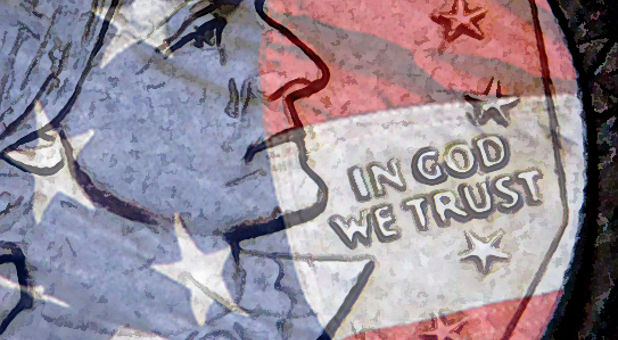What Would George Washington Say About President Obama?
In his Farewell Address, after serving two terms as America’s first president, George Washington warned that there are two things—religion and morality—that are “indispensable to political prosperity.” We should note that when Washington, or any of the Founding Fathers, use the word “religion” the word “Christianity” can be substituted. “Christianity” and “religion” were synonymous to them. And while they were tolerant of other religions, they were not “religious pluralists” in the modern sense. They derived their morals and values from Christianity. This is borne out by the fact that a recent, 10-year study project to discover where the Founders got their ideas for America’s founding documents revealed that, by far, the single, most-cited authority in their writings was the Bible (Eddie Hyatt, America’s Revival Heritage, 62).
Two Great Pillars for Human Happiness and Political Prosperity
Interestingly, the two things Washington said are indispensable for the success of the republic—Christianity and morality—are the very two things that are under increasing attack, and the two things that so many of our political leaders seem hell-bent on removing from the public life of this nation. In this same Farewell Address, Washington refers to Christianity and morality as the “great pillars” of human happiness and “firmest props” of the duties of citizens. He said:
“Of all the dispositions and habits which lead to political prosperity, religion and morality are indispensable supports. In vain would that man claim the tribute of patriotism, who should labor to subvert these great pillars of human happiness, these firmest props of the duties of men and citizens. The mere politician, equally with the pious man, ought to respect and to cherish them. And let us with caution indulge the supposition that morality can be maintained without religion. Whatever may be conceded to the influence of refined education on minds of peculiar structure, reason and experience both forbid us to expect that national morality can prevail in exclusion of religious principle.”
Although Washington was not outwardly zealous in his faith like a George Whitefield or a Jonathan Edwards, there is no question that he was a devout Christian whose faith was obvious in both his private and public life. Virginians tended to be more formal and reserved in their faith than their counterparts in New England. Whereas New England had been settled by Separatists, Puritans and Baptists who were vehemently at odds with the religious and political powers-that-be in the Old World, Virginia had been settled primarily by loyalist Anglicans (Church of England) who were more settled and accepting of the religious status quo. This is why Anglicanism was, for a time, the official state church of the Commonwealth of Virginia.
Nonetheless, with more and more interaction between Virginia and New England and with the impact of the Great Awakening, Virginians tended to take on the more intense and devotional character of New Englanders in their faith, and this is seen in the faith of Washington.
Washington: A True Christian Statesman
Upon assuming command of the American Revolutionary Army in 1775, Washington immediately began bringing a much needed discipline to the ragtag forces, and this included a moral and religious discipline. For example one of his first orders forbade profanity, swearing and drunkenness among the troops. The order also stated, “He [Washington] requires and expects all officers and soldiers, not engaged in actual duty, a punctual attendance of Divine services, to implore the blessing of heaven upon the means used for our safety and public defense.” For a time, Washington stayed in the home of a pastor, from which he issued his orders for each day after morning prayers. One of the orders directed the troops to observe a national day of fasting and prayer on July 20 “exactly in the manner directed by the Continental Congress.”
Henry Muhlenberg, pastor of a Lutheran church situated in the area of Valley Forge where Washington and his troops were camped during the winter of 1777-78, was able to observe many of their activities. He wrote, “Washington rode around among his army yesterday and admonished each and every one to fear God.” Muhlenberg went on to say, “This gentleman does not belong to the so-called world of society, for he respects God’s word, believes in atonement through Christ, and bears himself in humility and gentleness” (Benjamin Hart, Faith & Freedom, 293).













